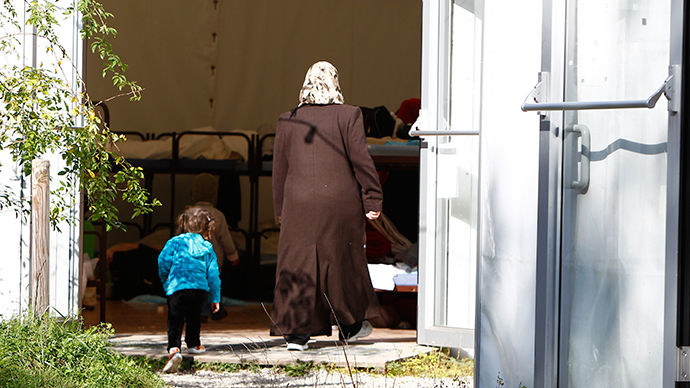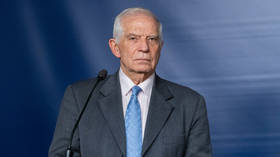‘Immigration burden not equal in EU’

The burden of immigration is not shared equally between EU members, with the majority of refugees concentrating in Germany and it getting no additional financial support from the block, Juergen Elsaesser, Editor-in-chief of Compact magazine, told RT.
RT:What is Angela Merkel’s approach to this issue?
Juergen Elsaesser: I think Chancellor Merkel makes a big mistake because she underestimates the burden of mass immigration on the German people. She made in her speech a comparison between the reunification after the Berlin Wall came down and the task of new mass immigration right now. But this comparison is not correct because when East and West Germany came together in 1989 both populations were similar - with similar traditions and habits, and the same language. Now mass immigration comes mostly from Muslim countries with a totally different background and that brings big problems for the population, and for the German people, and for German cities.
RT:Doesn’t anyone benefit from this freedom of movement within the EU?
JE: I think the main problem [with] immigration which comes now to Europe is that the burden is not shared equally between the member countries: most of the refugees come to Germany and countries like Italy transfer the arriving refugees over the Alps to Germany. So we have a concentration of these refugees on German soil and we have no equal [financial] support from the EU… to share this burden.
RT:The number of migrants differs in each country throughout the EU. How fair is that that the relevant laws apply across the entire block?
JE: For example, last year, we had 300,000 more people coming to Germany than leaving Germany. That means we have the highest figure of immigrants [in] 20-22 years. This year, we will have 200,000 refugees alone. In addition to that, we have the immigration from countries in the EU like Romania, Bulgaria and so on. So, in total it could be a figure of nearly 500,000.
Now when you look at our cities we have the obligation of normal citizens to accept refugees in their private homes, and the municipalities are building provisional villages for the Africans on the outskirts of the big cities. A kind of slum is beginning to grow up in the big cities and we have confrontation between right-wing groups on the one side and Islamists on the other side. We have a terrorist problem coming in with the refugees from let’s say Syria. And that is a very explosive mixture. I think our chancellor is underestimating this danger.
The statements, views and opinions expressed in this column are solely those of the author and do not necessarily represent those of RT.
The statements, views and opinions expressed in this column are solely those of the author and do not necessarily represent those of RT.












